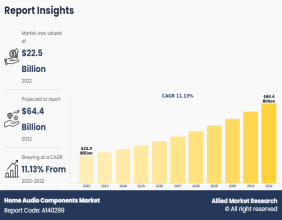Onfido, a technology company, is reportedly in talks with the British government to issue immunity passports, which would help people in going to work safely. However, World Health Organisation (WHO) does not endorse immunity passports as a safe method of easing the impact on the economy and returning to normal course of business activities from prevalent physical distancing even after current lockdown is uplifted. The technology company Onfido would use a combination of facial recognition and antibody testing to issue health passports. The tech firm has initiated its pilot project and is prepared to go live within months.
How would the immunity passport work?
The whole idea behind this passport is that the individual possessing the passport has antibodies present in his/her body and has developed resistance against the Covid-19. Therefore, he/she can enter the workplace and relax social distancing.
The tech firm, Onfido, through its mobile application, would ask the person to upload a selfie and a government identity proof. After validation, the application would ask the user to get tested at the NHS Centre for antibodies and the result of the test data shall be stored with NHS servers and is accessible to Onfido’s mobile application. This test would prove the individual’s immunity.
Now, when an employee reaches his/her workplace, through the same mobile application, the user can generate a quick response (QR) code at the reception. The receptionist would scan the QR code which would confirm the immunity to Covid-19. After immunity confirmation and employee validation, the employee would be allowed to enter the workplace.
Concept of an immunity passport
The governments world over had asked people to stay at home and are planning to increase antibody testing, and by using this testing, they can issue health/immunity passports. It is a documentation that one has had the infection, that you have antibodies testing done, and then you can presumably go back to work and relax social distancing.
However, this concept is built around several assumptions. The first assumption is that the test is accurate. But, since it is an asymptomatic disease, the test might not be accurate. The second assumption is that the antibody gives you immunity which may not actually happen in all cases. One may not have the right type of antibodies often referred to as neutralising antibodies and the right number of antibodies, as there should be a threshold for immunity. In addition, it is difficult to assess how long would the immunity last.
This method to get back to work is quite risky as it is evident from the assumptions. If people could go to work with these passports and potentially relax social distancing, this could risk not just them but also the people they come in close contact with. This can potentially bring about a second wave of the pandemic. Having the antibody does not necessarily guarantee immunity against the Covid-19 pandemic as there is no scientific evidence. It is an unseen enemy with just 4 to 5 months of data; the world has very limited knowledge. However, it has been learnt from a small study that 70 per cent of people display a strong and robust antibody response to the Covid-19 infection, 25 per cent of people show a weak response and remaining 5 per cent of people have no appreciable antibody response after they get the infection.
In addition, based on research conducted on the previous form of the coronavirus, it has been inferred that the antibodies offer some degree of protection but only till they last, and the duration lasts for 1 to 2 years. Hence, the immunity passports would allow people to freely blend with others, and it could lead to a huge surge in the infected. According to WHO, there is currently no evidence that people who have recovered from the deadly pandemic have the required antibodies present to protect themselves against the second wave of the deadly virus.
What has happened?
The outbreak of the novel coronavirus has caused great loss to the entire world not just economically but also in terms of human lives. Since its outbreak in last week of December, the deadly virus has claimed more than 230 thousand lives with 3,400 thousand of active cases and counting, in nearly 215 countries across the globe as on 4th May 2020. This unprecedented impact on the world economy has left millions of people jobless and many businesses on the verge of shutdown.
As the pandemic started to devastate major economies, with prevention being the only cure, the governments across the world went to impose lockdowns. The people were told to remain at home. In the quest to survival, major retailers saw panic-stricken buyers, fighting over canned food and pasta. The supermarkets later had to impose a limit on buying quantity of the essentials to ensure availability for the needy. Some businesses in the services sector asked its employees to work from home. The automotive sector nearly came to a halt due to disruption in the supply chain as most of the parts were coming from China. Restaurants, pubs and other High street retail shops were asked to shut down. One of the worst affected sectors remains Hospitality & Travel. Since travel restrictions are imposed by the governments for both domestic & international segments, the hotels are not in demand now. In some countries, these are taken over by the government and transformed into quarantine centres. Airline carriers too are devasted with no business at all and might collapse into administration or seek consolidation with no hope of getting back to the skies in the near term. Furthermore, the airline industry will not be the same again. New health measures are likely to be implemented by the airline industry before the skies reopen. Nearly all the manufacturing companies have also halted their operations.
In addition, a lot of wealth has been wiped off from the global equity markets, due to the pandemic, aggravated by panic selling by the investors resulting in huge losses both on the pooled investments of savings held by insurance and pension funds and the retail investors. The global turmoil was unprecedented and has exposed the world’s preparedness to pandemics and disaster management. No country was prepared for this kind of attack from an unseen enemy. The countries lack ventilators, medical staff, hospitals, protective gear, and research laboratories to develop vaccines. The world needs to have accelerated vaccine development in order to fight a virus which can spread to the whole world in a few weeks.
As the disease started spreading quickly, the governments had to hurriedly impose the lockdowns across the world. The availability of credit plays a major role in an economy and because of lockdowns, the businesses would have no other option than to rely on the stimulus and loans from the state. The governments too are going through a crisis as the nation needs tax revenue and credit which has already dried up and they are left with swollen deficits. As the world nearly came to a halt, the demand for the oil fell sharply. The world was left with an oversupply of oil which led to a record fall in crude prices, worsening the situation further.
What is the exit strategy of the British Government from the lockdown?
The comprehensive plan to reopen businesses devised by the British government would be out shortly. The government expects the businesses to resume operations if possible and is keen to control the damage to the economy due to lockdown induced by the Covid-19. The physical distancing rules and other safety procedures are expected to be a part of lifestyle now. Sector-specific detailed guidelines would be issued, let us discuss briefly, the exit strategies of various sectors.
In the manufacturing sector, face to face contact should be avoided as social distancing might not be feasible. Work surfaces which are used by all should be sanitised regularly. Workers would be allowed to work in shifts only to avoid gathering. Similar guidelines are likely to be enforced upon outdoor work such as farming, mining and cargo shipping.
Retailers need to practice social distancing by deploying queue management systems to ensure physical distancing and adequate spacing between individuals, and limiting the access of the walk-in customers to avoid congestion. The surfaces which are touched frequently, such as billing counters should be disinfected regularly.
In the services sector, work from the home facility is likely to be extended. However, in businesses where work from home is not feasible, the employees are expected to adhere to a 2-metre distancing rule, and work timings would be flexed to avoid overcrowding.
Delivery services have played an important role in making the lockdown successful. They ensured that the supply chain remained undisrupted amid the coronavirus crisis and are expected to deliver parcels at a safe distance from consumers.




